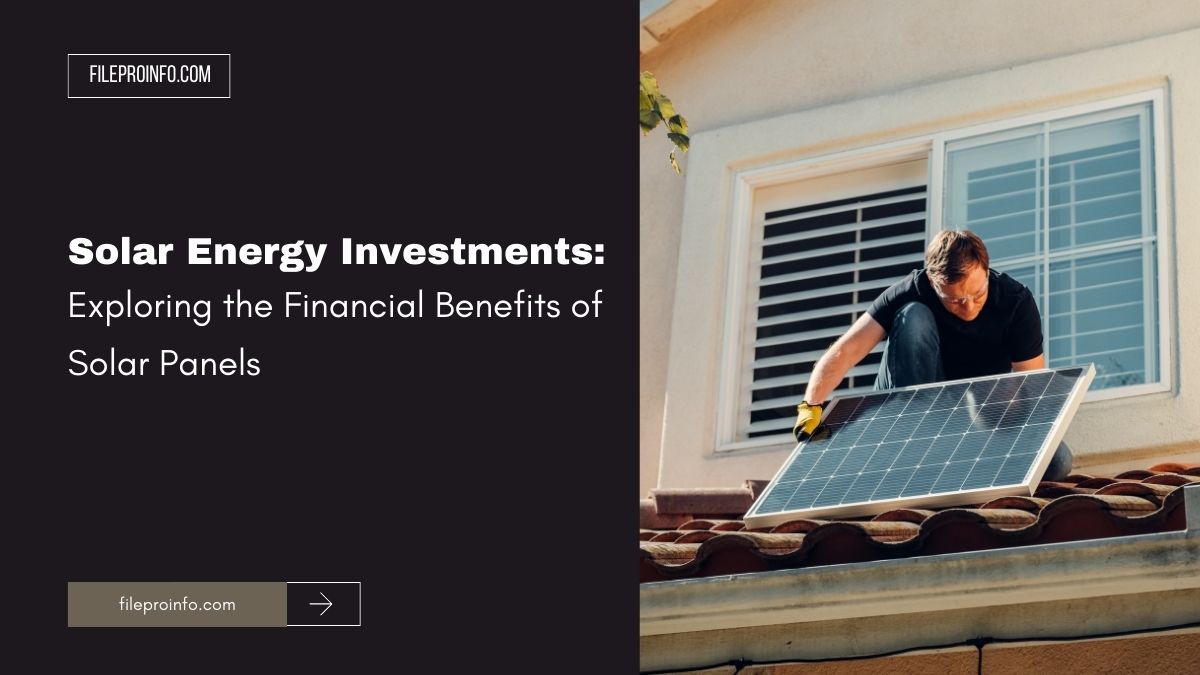
The active transition to solar technologies has become a logical consequence of the environmental situation that has developed in recent decades. During this period, people realized how fast the pace of negative changes is and understood that without immediate solutions, the consequences may be inevitable. Specific steps in this direction have been taken by state bodies. For the purchase of solar systems as well as the necessary equipment, they have formulated a system of incentives and programs.
As a result, serious progress can be seen, but to achieve net zero emissions by 2050, 3 times more investment in solar energy is required. These are the data indicated in the IEA report for 2023. Presently, this is causing some problems. Many people have realized how important technology is, but they are concerned about the relatively high initial investment required. Modern solar companies do offer not cheap prices. However, the attitude towards them may change after a detailed study of the financial advantages of solar panels.

Independent Production of Electricity
Solar systems can be safely called a universal solution. They can be useful for businesses and households. In any case, solar power investment allows you to provide your electricity production for all installed devices. Thanks to this, owners can make their energy system autonomous and reduce dependence on the general network.
The owner can no longer worry about grid outages, emergency shutdowns, and communications problems caused by natural disasters. In each of these scenarios, solar systems ensure uninterrupted energy supply and reduce power outage risks. The possibility of accumulating generated electricity deserves special attention.
This is possible thanks to the use of special solar batteries. The devices have different configurations and are used to store the electricity produced by the systems. Depending on the capacity indicators, they can power several or all electrical devices in the room. They can provide electricity to industrial and commercial premises, offices, shopping centers, homes, and campsites.
Protection Against Inflation and Price Fluctuations in the Market
The gradual depletion of natural resources used to generate electricity in traditional power plants is the reason for constant changes in tariffs. In addition, price policy is also affected by fluctuations in world non-fossil fuel prices and disruptions in logistics chains. These factors determine the instability of electricity tariffs and prices.
This does not reflect well on utility bills and costs in general. Investing in solar energy helps to avoid negative financial consequences. Technologies ensure the creation of a sustainable local energy system that is protected from the listed risk factors.
They use exclusively renewable energy, which is free and reliable. Owners can use as much solar radiation as needed to power all devices. This opens wide opportunities and helps to gain financial independence in the energy sector.
Reduction of Mandatory Costs
Payment for electricity provided by local suppliers is one of those types of expenses that significantly affect the budget. It is performed regularly, therefore, in the long run, it involves the formation of large sums. At the business level, such costs can become a serious problem.
Especially if the company plans scaling and expansion in other regions. However, these difficulties can be easily solved by solar energy investment. The installation of a certain number of solar panels with an appropriate power level can reduce the mandatory costs of electricity and save considerable amounts long-term.
This is due directly to the principle of operation of structures. They do not depend on exhaustible resources but generate electricity from renewable sources. The increase in electricity prices and tariffs won’t bother you after tens of years. Solar panels must have a sufficiently long service life. Modern installations can work for about 25-30 years or even more.
Long-Term Financial Benefit
Solar systems have another important financial benefit in addition to saving money on utility bills. They are true income assets, making them similar to traditional investments. Similar to this financial instrument, solar panels also help to reap benefits after a few years.
This is manifested in the fact that their use allows you to accumulate funds, which are saved as a result of saving on the payment of utility services, as well as receiving free electricity. It is common for the systems to cover their expenses for 6-9 years. After this period expires, the owner receives power without paying for the use of resources. Considering these features, it is worth learning in advance how to invest in solar to get the benefit sooner.
Significant Increase in Real Estate Value
Adding structures to a property will also increase its value, which should also be considered when evaluating the financial benefits. Houses and commercial premises on which green technologies are installed are several times more expensive than real estate without these technologies. This situation is due to several advantages that solar systems provide to new owners.
Considering the benefits, most potential buyers would pay such a price. The price is determined individually in each case. The age of the solar systems, their number, power level, condition of the panels, and other factors have an effect on them. Prices also vary depending on the state, because each has different electricity tariffs.
The Possibility of Using Financial Incentives
You should find out about state support for technology if you still have doubts about whether solar is a good investment. Every year, it is significantly improved and expanded, which opens up new opportunities for buyers. State and local governments are creating new programs, developing special solutions, introducing tax benefits and credits, and increasing the number of financial incentives. Business representatives can also receive grants for certain activities.
At present, solar system buyers can profit from a tax credit and a net metering system, which they can also utilize. Excess electricity can be returned to the system through the latter, which provides financial incentives.
That is, the electricity can be transferred to the general network if solar systems produce more than is needed to provide a specific object. In this way, the support of the general energy system is ensured, and the owner receives special benefits.
Conclusions
Furthermore, solar systems provide financial benefits as well as being part of a sustainable, zero-carbon future. With structures, you can reduce your utility bills, protect yourself from inflation and rate increases, and create your own independent energy system. It is also worth remembering that investing in solar provides the opportunity to use financial incentives.




